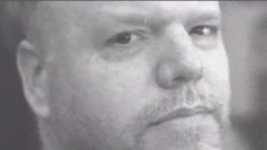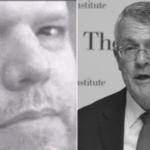ATO Whistleblower Forced to Plead Guilty, After Court Finds He is Not Protected by the Law

After being dragged across hot coals by the criminal justice system for the past seven years, Australian Taxation Office whistleblower Richard Boyle pleaded guilty to four criminal offences on Tuesday, 27 May 2025, even though the so-called crimes he is said to have committed were slight preparatory measures he took in building his case in order to disclose agency wrongdoing.
As he was aware that the ATO was misapplying a garnishee practice to remove funds from small business bank accounts, when it was not permissible to do, in order to bump up ATO end of financial year figures, Boyle submitted an internal public interest disclosure in 2017, but when the matter was ignored, he blew the whistle to the ABC in early 2018, without disclosing any protected information.
Boyle believed he was acting correctly in exposing this malpractice, and several inquiries have since affirmed this. The former ATO employee too believed he was protected in blowing the whistle due to the Public Interest Disclosure Act 2013 (Cth) (PID Act), as the mere existence of these laws designed to protect public service disclosers appears to encourage them to expose government corruption.
But on handing down her decision in respect of Boyle’s October 2022 public interest disclosure defence trial, South Australian District Court Judge Liesl Kudelka found in March 2023 that while the criminal immunity provided in section 10 of the PID Act did protect his disclosing to the press, he wasn’t protected in respect of the preparatory acts he took in building his case.
So, on Tuesday, before Kudelka again, Boyle pleaded guilty to four charges that were supposed to be representative of an initial 66 criminal offences laid against his name on indictment in 2019, which were later dropped down to 24 separate crimes in mid-2020.
And while this week’s outcome will likely mean Boyle doesn’t have to serve time, the government has achieved what it always set out to do in Richard’s case, which was, ultimately, ensure that the public understands that the ex-public service officer did the wrong thing, and all other potential public service whistleblowers have been warned of their potential fate for speaking out.
Guilty to reduced number of noncrimes
Boyle pleaded guilty to four charges in the SA District Court on Tuesday morning. The first involved one count of the making of a record of protected information, contrary to subsection 355-25(1)(b)(i) of schedule 1 of the Taxation Administration Act 1953 (Cth), which is an offence that carries up to 2 years imprisonment.
The second charge was one count of the unauthorised copying of another person’s tax file number, which is contrary to subsection 8WB(1)(a) of the Taxation Administration Act, and it carries up to 2 years inside and/or a fine of $21,000 (at time of offending).
The third charge that Richard has pleaded guilty to is one count of intentionally using a listening device to record a private conversation, which sits in section 4 of the Listening and Surveillance Devices Act 1972 (SA). This offence carries up to 2 years prison time and/or a fine of $10,000.
And the final charge was one count of disclosing protected information to another entity, contrary to subsection 355-25(1)(b)(ii) of schedule 1 of the Taxation Administration Act, which carries up to 2 years imprisonment.
The peculiar saga of charging Richard Boyle
The initial charging of Boyle with 66 criminal offences in January 2019 was an absurdity in itself, especially as none of the information that the whistleblower had collected in order to build his public interest disclosure case was ever revealed to the public.
But the initial 66 charges laid against his name did scream of the fact that the authorities were more than annoyed with his having gone public with the fact that the taxation office had been dipping into small business accounts to obtain money that was owed but at too early a stage than ATO protocols permit, and this was all being done in order to make the agency’s figures look good.
The dropping of the charges down to 24 counts in mid-2020 was further proof the authorities had overreacted, although it did continue to show that they sought to punish the legitimate whistleblower well and proper.
Yet, Boyle was no longer facing a combined maximum of 161 years inside, although the remaining charges could have seen him sent away for up to half a century.
Another development occurred in February this year, after Boyle raised a point with then attorney general Mark Dreyfus in a message that revealed the Commonwealth prosecutor had noted the illegitimacy of eight charges because they had not been made out, way back during the 2022 public interest disclosure hearings, yet Boyle was still continuing to face these charges earlier this year.
The point being made by the prosecution during that hearing was that eight charges involved the attempted disclosure of protected taxpayer information to another entity, when what had actually occurred was Boyle had uploaded the gathered information onto a Proton Mail email account belonging to his lawyer and instructed him not to access it, so no actual attempt had been made.
When Boyle next appeared in court in March, five of the eight charges he’d pointed out as being suspect the month prior were then dropped, leaving just 19 charges against his name. However, no reasons were provided as to why three of these dubious charges remained.
Indeed, the extreme nature of the initial charging of Boyle is made all the more bizarre by the fact that this week, the Commonwealth Director of Public Prosecutions (CDPP) is now satisfied with the ATO discloser only having pleaded guilty to a mere four offences.
Avoiding time but not conviction
SA Supreme Court Justice David Lovell explained on delivering the June 2024 decision in relation to the appeal of Boyle’s public interest defence ruling, that “it was common ground” that his “conduct in disclosing the information attracted an immunity from criminal prosecution” under the PID Act, and he further declared that Richard was a whistleblower “as that term is commonly understood”.
Former AG Dreyfus was aware of all this, but he refused to drop the case against Boyle, even though he had the power to end any Commonwealth prosecution, under section 71 of the Judiciary Act 1903 (Cth). Yet, when he was quizzed as to why he didn’t drop the charges against the ex-ATO employee, the then AG responded that he didn’t consider it exceptional enough circumstances to do so.
The nastiest aspect to Dreyfus’ approach to this case was, as he was planning a major overhaul of the PID Act due to its deficiencies, a 2023 consultation paper exploring reforms to the laws that should be enacted to improve them contained within it contemplation of making preparatory acts be covered by the section 10 criminal immunity, which would have meant Boyle was innocent.
The expectation on his having accepted the deal and pleading guilty to four minor criminal offences is that Boyle will likely not have to serve time in prison, as the understanding is the CDPP will not be pressing for this, in respect of the legitimate whistleblower, whose act led to the ATO ending the misuse of its garnishee practice.
The CDPP will be pressing, however, for convictions to be recorded against Boyle’s name, despite the whistleblower considering this should not be the case.
So, the takeaway is when it comes to public service employees exposing government corruption, while it is officially encouraged, the discloser is always wrong to do it, and if they do, their lives will be sent into disarray, which will include being punished by any means possible, even if that does not include spending time in prison.







